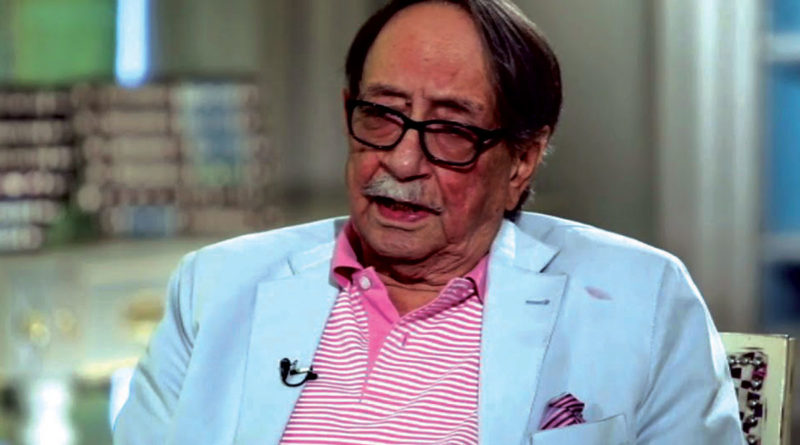“Modi is milking it to the extreme”, says former RAW-chief on post-Pulwama strikes
by Arshu John
AS Dulat is among India’s foremost experts on India-Pakistan relations and Kashmir. Since the late 1980s, he has worked in several high-ranking government offices in Jammu and Kashmir, giving him a ringside view of its highest political circles. Dulat went on to serve as the chief of the Research and Analysis Wing and the special director of the Intelligence Bureau between 1999 and 2000, during the Kargil war. From 2000 to 2004, during the term of the former prime minister Atal Bihari Vajpayee, Dulat served as his advisor on Kashmir.
In a conversation with Arshu John, an assistant web editor at The Caravan, Dulat discussed the ongoing conflict between India and Pakistan. On 26 February, India conducted air strikes in Balakot, in Pakistan’s Khyber-Pakhtunkhwa province, following a militant attack on a Central Reserve Police Force convoy, on the Jammu-Srinagar highway in Pulwama. The following day, tensions escalated as the two nations engaged in an aerial confrontation, which resulted in Pakistan capturing an Indian pilot. The Pakistan government has stated the pilot will be released from custody on 1 March. “I did not expect this sort of reaction,” Dulat said, commenting on India’s air strike. He added that it could be seen in the context of the upcoming Lok Sabha elections in India.
Pulwama was a terrible tragedy. The immediate government reaction was, “If this is what you are going to do, we will show you.” So I think it was inevitable that something was going to happen, and it had to be something bigger than the previous surgical strike. That is the context in which these air strikes took place. But it was equally inevitable that Pakistan would react, and they reacted immediately, the day after the air strikes.
Though I did not expect this sort of reaction to Pulwama, I am no one to comment on whether the Indian response was a correct one. But the Pakistan prime minister Imran Khan’s reaction to the Balakot strikes has been interesting—in particular, his offer for peace talks and willingness to discuss everything, including terrorism. Khan is signaling that Pakistan has done what it had to do after the air strikes. The message is: “We did not want to do this, but you provoked us, so we have done it.” The international community has also called for de-escalation. As a result, Khan has now grown in stature—in Pakistan and internationally.
With Narendra Modi, it remains to be seen how the air strikes will affect his perception at an international level. In India, the feeling is that he is going to gain in the upcoming Lok Sabha elections as a result of the response. The elections will be in the minds of certain people—that is also why I think something was going to give this time, and also why a response to the Pulwama attack was inevitable.
AS Dulat is among India’s foremost experts on India-Pakistan relations and Kashmir. Since the late 1980s, he has worked in several high-ranking government offices in Jammu and Kashmir, giving him a ringside view of its highest political circles. Dulat went on to serve as the chief of the Research and Analysis Wing and the special director of the Intelligence Bureau between 1999 and 2000, during the Kargil war. From 2000 to 2004, during the term of the former prime minister Atal Bihari Vajpayee, Dulat served as his advisor on Kashmir.
In a conversation with Arshu John, an assistant web editor at The Caravan, Dulat discussed the ongoing conflict between India and Pakistan. On 26 February, India conducted air strikes in Balakot, in Pakistan’s Khyber-Pakhtunkhwa province, following a militant attack on a Central Reserve Police Force convoy, on the Jammu-Srinagar highway in Pulwama. The following day, tensions escalated as the two nations engaged in an aerial confrontation, which resulted in Pakistan capturing an Indian pilot. The Pakistan government has stated the pilot will be released from custody on 1 March. “I did not expect this sort of reaction,” Dulat said, commenting on India’s air strike. He added that it could be seen in the context of the upcoming Lok Sabha elections in India.
Pulwama was a terrible tragedy. The immediate government reaction was, “If this is what you are going to do, we will show you.” So I think it was inevitable that something was going to happen, and it had to be something bigger than the previous surgical strike. That is the context in which these air strikes took place. But it was equally inevitable that Pakistan would react, and they reacted immediately, the day after the air strikes.
Though I did not expect this sort of reaction to Pulwama, I am no one to comment on whether the Indian response was a correct one. But the Pakistan prime minister Imran Khan’s reaction to the Balakot strikes has been interesting—in particular, his offer for peace talks and willingness to discuss everything, including terrorism. Khan is signaling that Pakistan has done what it had to do after the air strikes. The message is: “We did not want to do this, but you provoked us, so we have done it.” The international community has also called for de-escalation. As a result, Khan has now grown in stature—in Pakistan and internationally.
With Narendra Modi, it remains to be seen how the air strikes will affect his perception at an international level. In India, the feeling is that he is going to gain in the upcoming Lok Sabha elections as a result of the response. The elections will be in the minds of certain people—that is also why I think something was going to give this time, and also why a response to the Pulwama attack was inevitable.
India should take up Khan’s offer for peace talks, to end this whole thing. I think what had to be done has been done. Now, diplomacy will come into play. Sooner rather than later, this has to end. But whether we talk to Pakistan or we sulk, that is a choice left to the government. In boxing you have three basic rounds, and this was round one. I think the situation has already played itself out, but you never know. There are elections ahead, so there may be a second and third round—who can say what great people think.
As far as the approaches taken by Modi and Atal Bihari Vajpayee in addressing the situation in Kashmir, that is for everyone to see—there is no comparison. Vajpayee was a towering personality. It is not for nothing that he’s still revered in the valley. But look at what is happening in the valley now. There is no military solution to Kashmir. When Modi became prime minister, there was a lot of hope in the valley. But we have messed up Kashmir in the last two and a half years, since July 2016.
For the last thirty years or more, India has been in a situation with terrorism next door. There is no doubt that the factory of terrorism is in Pakistan, that is where these guys are manufactured. Pakistan itself is suffering because of that—it has more terror than any other country.
But since we live in a dangerous neighbourhood, every prime minister is tested in some form or another. It is how each prime minister responds to these tests that determines how great they are. Vajpayee was tested three or four times—he faced the Kargil war in 1999, the hijacking of the Indian Airlines flight IC 814 in the same year, and the attack on the parliament of India in 2001. He still avoided provocation. In April 2003, he told the Kashmiris, “I have held out my hand of friendship to Pakistan twice and twice I have been let down, but I am not going to give up.” In January 2004, he went to the South Asian Association for Regional Cooperation summit in Pakistan, and that is when Pervez Musharraf, the president of Pakistan at the time, assured Vajpayee that he would not allow Pakistani territory to be used for terrorism against India.
Manmohan Singh also had a huge test with the attack in Mumbai in November 2008. Modi has been comparatively lucky. Pulwama is the only big test that he has faced. Whether it was Manmohan Singh or whether it was Vajpayee, there was very little that was said. Whatever had to be done was done quietly. Modi is milking it to the extreme.
Article first published on The Caravan.



